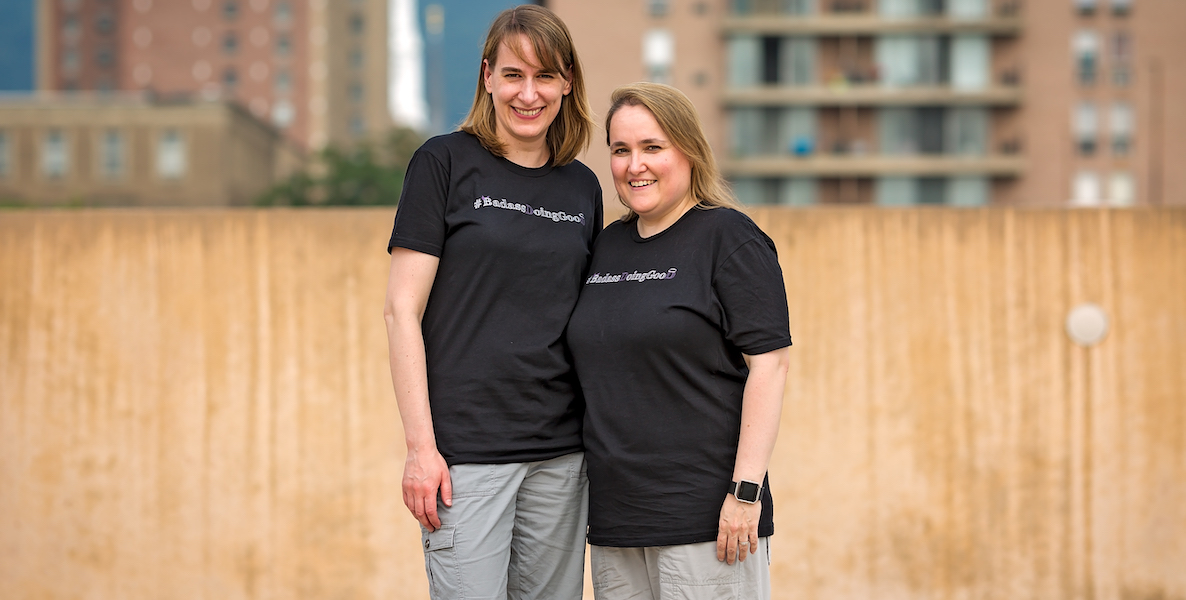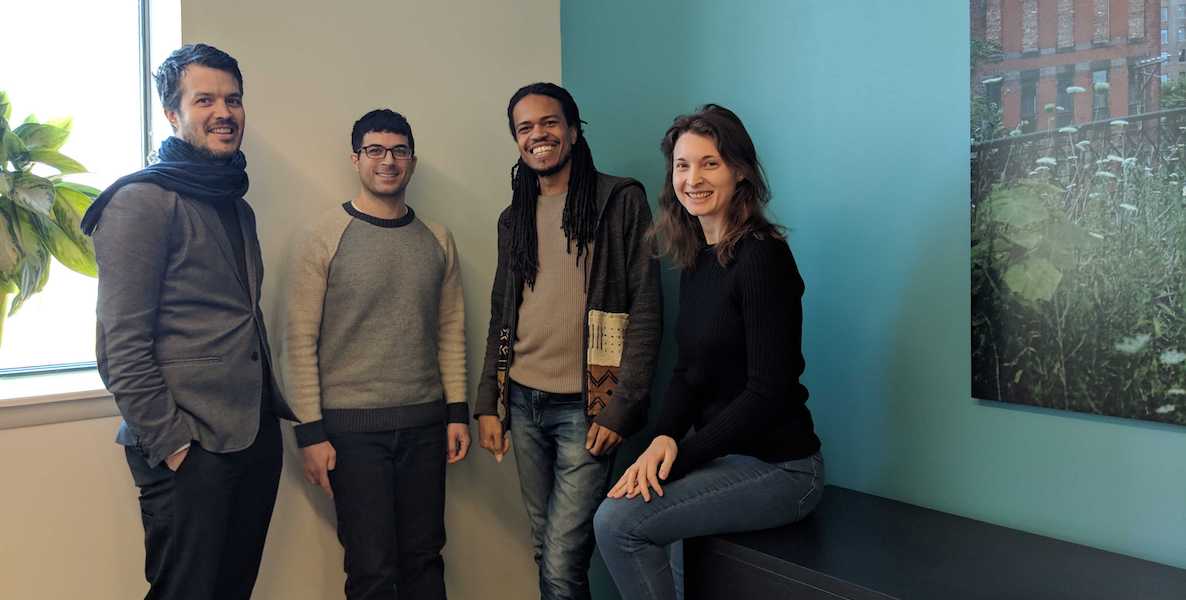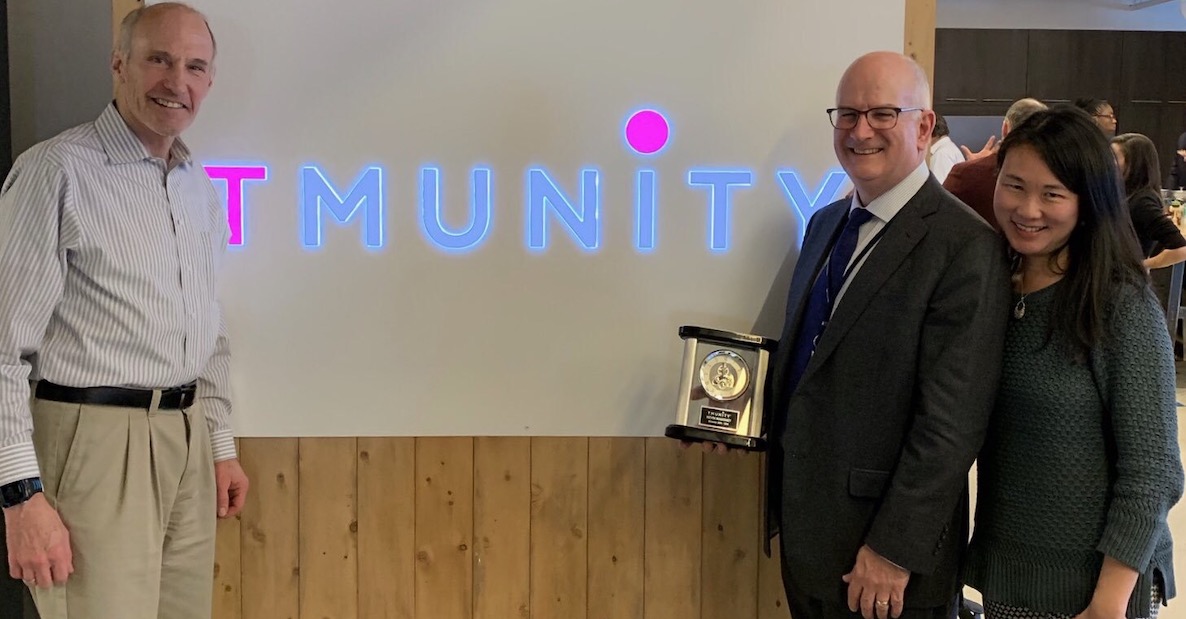Philadelphians—Philly media, especially—love referring to the city as a “meds and eds” hotbed, but they might be the only ones using that label. Spend any time outside of Philly and it becomes clear that our global reputation still hinges more on tired tropes: Rocky; cheesesteaks; unhinged mascots.
The reality is that, for years, Philly has lagged behind intellectual hotbeds like Boston, Silicon Valley—even Pittsburgh, with its autonomous car startups and Google outpost—for academic and entrepreneurial talent. That stems in large part from the funding sources those cities have more successfully attracted and cultivated to seed and support businesses.
Take Boston where, according to the nonprofit Massachusetts Biotechnology Council, 18 of the top 20 drug companies and 10 of the top medical device companies are located, and where, as far back as 2008, venture capitalists have steadily been investing billions of dollars in scientific inventions. Those dollars and jobs (more than 100,000 people in Massachusetts are employed in biotech) and that space (Boston has an estimated 28 million square feet of labs) simply don’t exist in Philly.
But over the last year, Penn has been leading an aggressive charge to change that.
“I think Philadelphia could do a better job of branding itself. We’re known for the Liberty Bell and history. But we’re creating new history,” says Kevin Mahoney, the executive vice president of the University of Pennsylvania Health System and executive vice dean at Penn’s Perelman School of Medicine.
Just one year into the pilot, Penn has invested $14 million that has generated $470 million of outside funding, $88 million of which will come back to Penn as corporate sponsorship agreements to create jobs, fund research—and keep talent in Philadelphia.
This new chapter, dubbed simply the “co-investment pilot,” is a $50 million pot of Penn’s own money, to be invested over three years in Penn faculty-led businesses that commit to the following, as reported last June: advancing science; getting novel treatments to patients quickly and safely; and building an ecosystem—that is, setting up shop and staying—in Philadelphia. Any company up for consideration is reviewed by a leadership team from Penn Center for Innovation, Penn Office of Investments, Penn Office of General Counsel and Penn Medicine.
![]()
Just one year into the pilot, Penn has invested $14 million that has generated $470 million of outside funding, $88 million of which will come back to Penn as corporate sponsorship agreements to create jobs, fund research—and keep talent in Philadelphia.
Most importantly to Penn, the money is being invested to advance science and improve the health of its patients. In the last 18 months or so, there have been six Food and Drug Administration approvals of products that were either invented or developed at Penn.
![]()
“If I was just investing, I could put that money into the endowment in the University and get a great return, or I could buy more diagnostic equipment, or I could hire more people,” Mahoney says. “But if you can cure people, or make their health condition better, or advance science, that’s what we’re here for. It’s not to be a tech fund.”
Penn’s belief in the potential of the pilot came from the indisputable success of an early model for it. In 2015, Mahoney proposed to Penn’s board that they invest $5 million in Tmunity Therapeutics; the company—led by Penn faculty Carl H. June; Bruce Levine; Yangbing Zhao; Jim Riley; and Anne Chew—focuses on developing immunotherapies designed to squash devastating diseases like cancer. (While the investment happened prior to the 2018 kickoff of the $50 million pilot, Tmunity is considered the program’s first beneficiary—a sort of pre-pilot pilot.)
“The reason we’re doing it is the research funding that’s coming in, and [to] keep our faculty engaged and in Philadelphia—not on an airplane to Boston or some of the other places that are competing with us for this life sciences hub,” Mahoney says.
It was the first time Penn had seeded a company with a financial investment—and it proved that the model could work.That $5 million vote of confidence (along with another $5 million from a China-based company called Lilly Asia Ventures) translated into $135 million in series A funding to Tmunity. More meaningfully, it helped enable Tmunity to make giant strides in developing treatments for cancer and other infectious and autoimmune diseases.
On Monday, a similar model made headlines, when Philly-based Spark Therapeutics—which early on, had investment from Childrens Hospital of Philadelphia—was sold to pharmaceutical behemoth Roche Holding AG for $4.3 billion. While not related to the Penn initiative, it certainly bolsters the Philly biotech scene and fuels a rising tide.
“[Penn] really put their money where their mouth was,” says Usman Azam, Tmunity’s President and CEO. “It has shown the world that you can have great companies in Philadelphia and you can command good valuations. That’s what we’ve done and we hope that more companies are able to achieve that kind of success.”
Since the launch of the $50 million pilot, Penn has invested in Passage Bio and Carisma Therapeutics (both in Philly) and Cabaletta Bio (in Radnor), all of which focus on cell and gene therapy, and are led by Penn faculty.
The pilot is slated to end at the three-year mark, a veritable lifetime in startup years. Whatever course Penn takes thereafter, Mahoney says Penn’s aim will remain the same.
“We’re not doing this to get a huge financial return. Do we want one? Of course. Because we can use that for community programs and to drive down the cost of healthcare,” Mahoney says. “The reason we’re doing it is the research funding that’s coming in, and [to] keep our faculty engaged and in Philadelphia—not on an airplane to Boston or some of the other places that are competing with us for this life sciences hub.”






